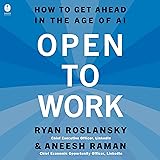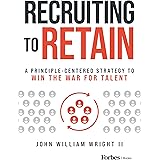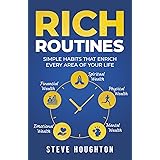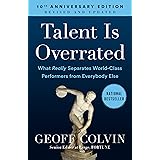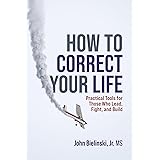Do you dread the word “networking” during your job search? If just the thought of attending a formal event with a stack of business cards makes you cringe, you’re certainly not alone. Many job seekers, including Indeed’s job seeker expert Gina, openly express their dislike for traditional networking, as you might have heard in the insightful video above featuring career coach Jenn Herrity. The common frustration often stems from an outcome-oriented approach, where disappointment can quickly set in if immediate job leads aren’t secured.
However, what if we told you that successful career networking doesn’t have to be a painful, transactional experience? It’s time to redefine what networking means for your job search. Instead of viewing it as a hunt for a direct job offer, imagine it as an opportunity to build genuine professional relationships and foster valuable connections. This shift in perspective is crucial for making networking work effectively for you, transforming a dreaded task into a powerful tool for career advancement.
Shifting Your Networking Mindset: From Transactional to Relational
The traditional image of a networking event, where everyone exchanges business cards and pitches themselves, often feels artificial and forced. This approach prioritizes immediate outcomes, leading to feelings of failure if a job offer isn’t landed right away. Career coach Jenn highlights this problem perfectly, noting that expectations for instant leads often lead to disappointment. Instead, consider focusing on building authentic relationships that can support your career growth over time.
Think about it: who wants to feel like they’re just a means to an end? When you approach networking with a genuine interest in others and a desire to learn, you create a far more positive and memorable interaction. People are much more likely to help someone they feel a connection with, rather than someone who seems solely focused on personal gain. This relational approach helps you tap into the “hidden job market,” where many opportunities are filled through referrals and word-of-mouth before they’re ever publicly advertised.
Mastering the Informational Interview for Job Search Success
One of the most powerful tools in your networking arsenal is the informational interview. As Gina confessed in the video, poorly prepared informational interviews can go awry quickly. An informational interview is not a job interview; it’s a low-pressure conversation designed for you to gather information and insights about a particular role, company, or industry from someone working in that field. It’s a chance to expand your knowledge and make a valuable connection without the immediate pressure of a job application.
To ensure a successful informational interview, preparation is paramount. Begin by thoroughly researching the person you’re meeting, their career path, and the company they work for. Look for commonalities, such as shared alma maters, past employers, or even mutual connections, to use as icebreakers. This groundwork shows respect for their time and demonstrates your genuine interest, making the conversation more engaging and productive for both parties.
Key Preparation Tips for Informational Interviews:
- Do Your Homework: Before your meeting, dive deep into the person’s LinkedIn profile, company website, and any articles or projects they’ve been involved in. Understanding their professional journey allows you to ask more specific and thoughtful questions.
- Prepare Thoughtful Questions: Avoid generic inquiries. Focus on questions that delve into their experiences, challenges, and insights. For example, instead of “What do you do?”, ask “What’s a typical day like in your role, and what aspects do you find most rewarding?”
- Identify Your Objectives: What do you hope to learn from this conversation? Are you exploring a new career path, gathering insights on a specific company culture, or seeking advice on skill development? Clearly define your goals to guide your questions and ensure you get the information you need.
- Practice Your “Why”: Be ready to articulate why you’re interested in their field or company and what you’re currently exploring. This isn’t a sales pitch, but a concise way to share your professional aspirations and allow them to understand how they might be able to help.
Crafting Effective Questions for Your Informational Interview:
Having a list of open-ended questions prepared can make all the difference, as Jenn emphasized. These questions should encourage detailed responses, moving beyond simple yes/no answers. Imagine asking: “What was your career trajectory, and how did you navigate key turning points to reach your current position?” This invites them to share their journey and provides valuable lessons.
- “What skills or experiences do you believe were most critical in your journey to this role?”
- “What are some of the biggest challenges you face in your industry today, and how do you or your team address them?”
- “If you could go back and give your younger self advice when starting in this field, what would it be?”
- “What is the company culture like here, and what aspects do you appreciate most?”
- “Are there any professional organizations, resources, or individuals you’d recommend I connect with to learn more about this field?”
Remember, the goal is to listen, learn, and build rapport. By asking insightful questions, you not only gain valuable information but also leave a lasting positive impression, making it more likely that they’ll remember you when opportunities arise.
Tapping into the Hidden Job Market Through Referrals
Many jobs are never publicly advertised; instead, they are filled through internal referrals. This concept, often called the “hidden job market,” highlights the power of your professional network. As Jenn shared, she landed her role at Indeed through a former colleague’s referral, demonstrating the real-world impact of strong connections. When someone within a company vouches for you, it instantly boosts your credibility and often fast-tracks your application past hundreds of others.
Building a network where people know your strengths and aspirations is key to accessing these hidden opportunities. Imagine if your former colleague knew you were looking for a specific type of role. They might hear about an opening at their company before it’s posted and immediately think of you. This isn’t about asking for a job directly but about nurturing relationships so that when suitable opportunities arise, your name comes to mind naturally.
Networking Within Your Current Company: The Power of Skip-Level Meetings
Networking isn’t just for external job searches; it’s also vital for internal career growth and exploring new opportunities within your current organization. Jenn specifically recommended “skip-level meetings” – conversations with people who are two or more levels above you in the company hierarchy, or even peers in other departments. These meetings can provide invaluable insights into different roles, strategic initiatives, and potential career paths you might not have considered.
Approaching internal networking strategically ensures it’s well-received. Instead of simply sending a calendar invite, respectfully ask for their time, perhaps during their office hours or a brief coffee chat. Clearly state your intention to learn from their experience or understand different aspects of the business. For example, “I’m keen to understand the strategic direction of our marketing department; would you be open to a brief chat about your work?” This shows initiative and a desire for broader organizational knowledge, which can benefit your employer while also advancing your career.
Building these internal relationships allows you to be top-of-mind when new projects or internal transfers become available. Imagine a senior leader recognizing your proactive interest and inviting you to contribute to a cross-functional team. This internal networking can unlock new possibilities, help you develop new skills, and position you for future leadership roles.
Maximizing Your Network: Q&A with Our Career Coach
What is career networking, really?
Career networking is about building genuine professional relationships and connections, rather than just looking for an immediate job offer. It’s a way to foster support for your career growth over time.
What is an informational interview?
An informational interview is a low-pressure conversation where you gather information and insights about a job, company, or industry from someone working in that field. It’s not a traditional job interview.
What is the hidden job market?
The hidden job market refers to jobs that are not publicly advertised and are often filled through internal referrals within a company. Building a strong network helps you access these opportunities.
What are ‘skip-level meetings’?
Skip-level meetings are conversations you have with people who are two or more levels above you in your company, or with peers in other departments. They help you gain insights and explore internal career growth.



